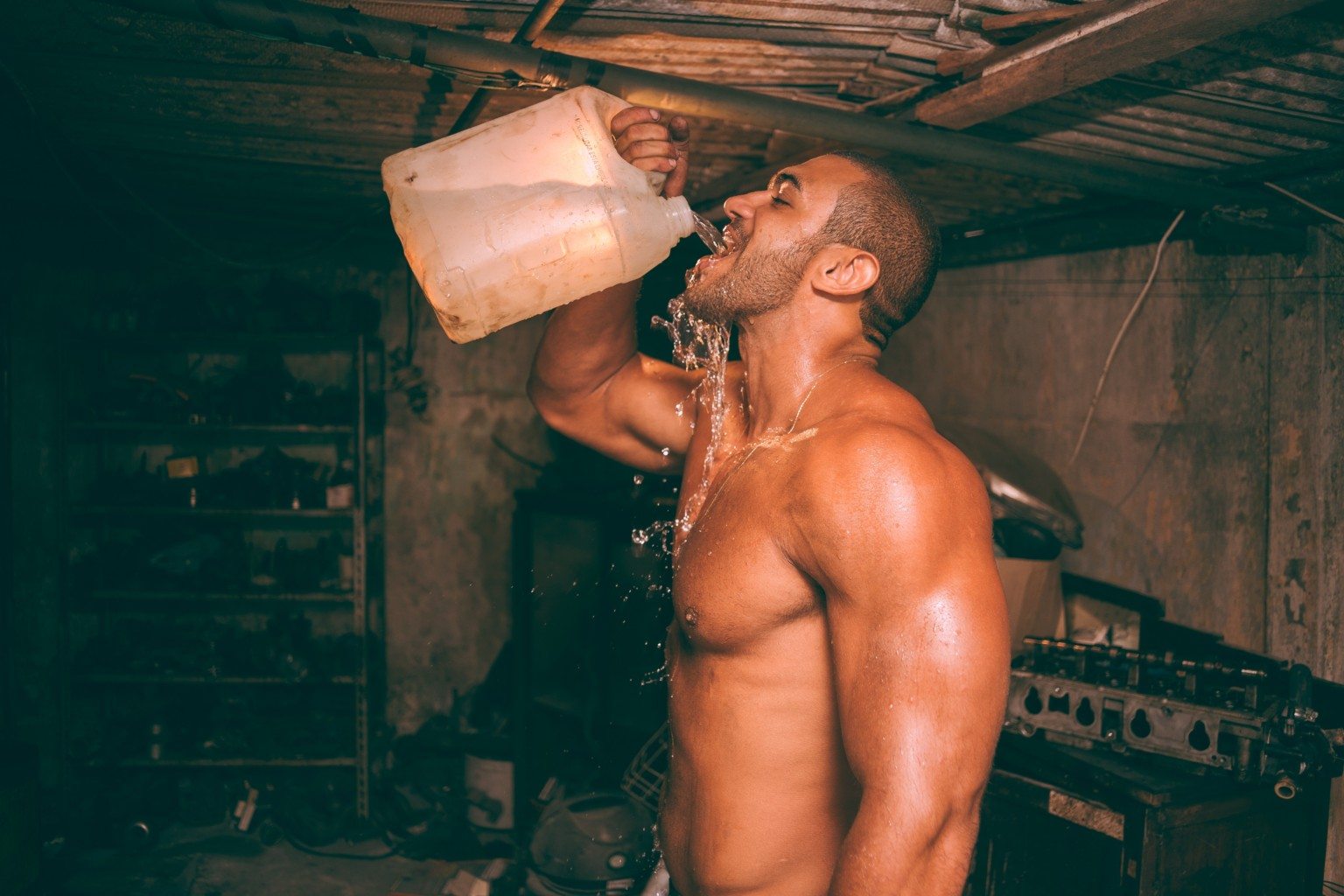‘Do you even lift, though?’
Dench’… ‘swol’… ‘gains’… whether in a locker-room, on Love Island or a hashtag on Instagram, these terms you’ve heard or read somewhere are the new modern vocabulary of masculinity. Our word bank has become saturated with a host of words which all refer to the same thing- one’s body size or muscle mass. But this corporeal slang doesn’t just simply refer to a bigger frame- it brings with it a variety of anxieties and pressures that us men are feeling now more so than ever before.
The optimal masculine form has evolved and shifted over time, from Michelango’s ‘David’ to the ‘heroin chic’ skinny of 90’s models and rock stars. Society has always pedestalled some types of physical form over others, and these have shifted arbitrarily with the fashion trends of the day. The current ideal- a body with every muscle as inflated as is naturally (or with chemical assistance) possible can be traced back to the 80’s explosion in gym membership, personified by the Rocky films, or the superhuman frame of Schwarzanegger as the Terminator. Never before had bodybuilding culture and gaining muscle mass for aesthetic reasons been so relentlessly pushed by the media.
Talking to most women, I’m admittedly not alone in giving preference to a body that’s in shape and looked after…
However even this previous peak of interest pales in comparison to today’s ‘gym-rat’ culture. Massively fuelled by the prevalence of social media, in particular the horde of lifestyle and fitness Instagram figures, the ‘bigger is better’ mentality has stopped feeling like an option and is increasingly marketed more like a prerequisite.
I know some men with slimmer frames, including myself, who feel self-conscious just to bare their pins when England’s shorts-weather season rolls around. “These bad boys are good enough to run half marathons”, I tell myself, so why should I feel anxious about getting them out just because they don’t boast serious quads? As someone to who prefers the male sex, the reasoning behind this obsessive bulking is even harder to grasp. Talking to most women, I’m admittedly not alone in giving preference to a body that’s in shape and looked after. But I’m also not alone in finding something decidedly unattractive about men who invest so much of their free time obsessively sculpting themselves. There’s only so many conversations you can overhear on the U1 about the optimum amount of minutes post-workout to guzzle down a protein bar until the whole thing starts becoming a little ridiculous.
Plenty may call me a hater, and I can’t pretend to be immune to the pull and pressure of the #liftlife…
Paired with the relentless Instagram posturing and the prevalence of headless torso photos on gay dating apps demonstrates that it’s not like this lifestyle keeps itself to itself. My dating bio, like many others, reads “FACES ONLY”, but the sheer frequency with which I receive decapitated snaps of 6-packs makes me think that worryingly for many this really is enough to agree to a meet up. Certainly the lines between the ‘gay’ and ‘straight’ worlds are becoming blurred through this issue, with the increasingly popular tight-fitting t shirts and specially designed ‘muscle jeans’ to show off the fruits of ‘leg day’ makes it far harder to speculate on the sexual preferences of that guy uncomfortably walking past the floor 3 toilets like an overstuffed Ken doll.
Now, plenty may call me a hater, and I can’t pretend to be immune to the pull and pressure of the #liftlife, or sometimes wonder if I’d be happier if I started eating five fastidiously timed chicken-based meals to build up my muscles. Yet in actuality, research suggests an insidious flipside to the bulking trend; according to a study done by Body Dysmorphic Disorder Foundation, one in ten male gym-goers are said to suffer from ‘bigorexia’, a form of dysmorphia where not matter how much muscle mass you put on you perceive yourself as too ‘small’. The study also points that this kind of gym use ties into higher levels of stress and anxiety, counteracting the normally positive effects that exercise has on mental health.
When you look into the reflected faces of those guys that stare themselves down in the mirror as they pump dumbbells… do you see happiness?
Whilst there are undoubtedly many who really genuinely enjoy using the gym to bulk up, you only have to go to the weight section of your average gym to sense it’s a highly competitive environment that could prove toxic very quickly. Plus, when you look into the reflected faces of those guys that stare themselves down in the mirror as they pump dumbbells, vigorously throttling their protein shakes in the other hand, do you really see happiness? I certainly don’t.
What this skinny lad hopes is that, similar to the challenges women face with the hierarchy of female figures, we can learn to appreciate a wider range of body types. Hopefully, then those who wish to change theirs can do so freely, and those who are happy as they are can remain so unpressured.

Comments